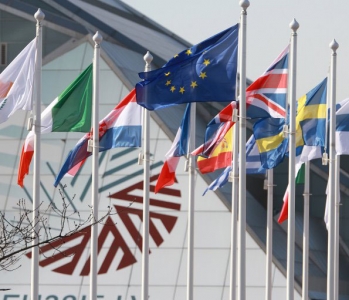
The Riga summit’s agenda will focus on key issues such as: state building and rule of law; digital single market and e-commerce; energy security and interconnections; mobility of people and visa issues; conflict resolution and the crisis in Ukraine. In the long term, a less important but most popular issue is visa liberalisation, for all 6 countries of the Eastern Partnership. The visa issue is affecting millions of people (voters) and political elites have no choice but to pay it a lot of attention, since sooner or later they will have to face elections.
Other issues on the agenda are also important for Georgia. Today we face the reality of Georgia becoming the last link in a high-speed railway line that should shorten cargo transportation from Europe to China and vice versa to merely nine days, as opposed to 30-40 days if naval transport is used. In addition, Georgia is also the main transit point for an energy highway connecting Europe to Caspian resources, which could become even more significant if an agreement is reached with Iran as well.
Back to Riga, though: one of the summit’s intrigues will be the representation of Belarus, since President Lukashenko is currently under EU sanctions and Latvia as the host country did not request an exception for him to visit Riga.
Another turbulent matter concerns Moldova: After 2014 elections, Moldova has failed to create a pro-Western majority and ended up forming a pro-European minority government. About 45 percent of Moldovans still support the country becoming Moscow’s satellite despite the visa-free regime that was introduced by the EU for Moldova in April of 2014. Roughly 360,000 (10 percent of the population) citizens traveled to EU without visas in the first eight months since the regime was implemented.
Today Georgia is more important for the EU because it is the #2 target for Russia after Ukraine and holds a key location in Transcaucasia. Realpolitik-wise, having Georgia on your side means you will have all of the region sooner or later. Also, the EU has to respond to growing Georgian sympathies towards the Eurasian Union, which were reflected in the latest polls, with 31 percent of respondents being in favor of it. The EU understands the persity of all 6 countries and has already approved differentiation in approaches to them. It is clear that Georgia and Moldova are the leaders of Eastern Partnership. Ukraine will receive support from the EU in the form of a declaration or a statement.
The presidents of Armenia and Azerbaijan will have a meeting over the Nagorno-Karabakh issue during the summit, which will most likely not bring any results.
As for implementation of Georgia’s “home¬work” on visa liberalization given by the EU, the Georgian government has failed to fulfill some of the recommendations related to the legislative and procedural issues of asylum for immigrants, combating corruption, trafficking and anti-drug policy. Due to incompetent actions taken by Georgian ministry of Justice and MFA, who introduced a visa regime for Iran, Iraq and Egypt, Georgia lost about 100 million USD of income from tourists and investors from these countries. After signing of Association Agreement with the EU, sales of Georgian goods went down by 40 percent in Russia. This is mostly due to the instability of Russia itself, but the additional import tax implemented by the Russian Federation factored in as well.
Russia never officially objected to EU integration process prior to 2008. Since that time, Russian attitude has changed: according to Alexander Lukashevich, spokesman of the Russian MFA, the Eastern Partnership has anti-Russian undertones and Russia’s reaction to it will be harsh.
Kiev has delayed the beginning of reforms, upsetting Brussels and top leaders of the EU, who call on Ukraine to launch reforms immediately. Kiev was promised to receive billions in loans if the Ukrainian government cuts its expenses, begins the process of decentralization of the state power and starts combating corruption. The international advisory board, chaired by Georgia’s ex-President Saakashvili, did not deliver any tangible results so far.
Apparently, simply copying facade Georgian reforms will not work in Ukraine due to the following reasons: intellectual potential in Ukraine is much higher than in Georgia; industry-related technocrats have a far stronger position; oligarchs play a major role in Ukrainian politics and corruption is almost endemic and most political leaders are oligarchs themselves, Poroshenko included. All that considered, Poroshenko seems to be very optimistic and hopes to receive visa liberalization by January 1, 2016 and is confident that his country will receive EU candidate status in 5 years’ time.
Ukraine, Georgia and Moldova need a free visa regime in order to nudge breakaway territories towards stability. The visa-free year provided to Moldova shows that while not as effective as expected, it nevertheless remains a positive tool in a dialogue with separatists.
Realistically, there will not be a single word said in the summit declaration about possible EU membership of any Eastern Partner countries. As for visa liberalization, countries should not expect a visa free regime unless all homework is done and practically speaking, this can be reached by the end of 2016 or beginning of 2017.
The Summit of the Eastern Partnership Program is more of a ceremonial event rather than a decision-making gathering, used by the EU to demonstrate its interest towards the aforementioned six countries, inspire hopes among them and to prevent these countries from considering the Russian option.
By Irakli Gogava, Director of the Development Laboratory of Georgia
v-if="article.gallery" v-html="article.gallery"
(adsbygoogle = window.adsbygoogle || []).push({});